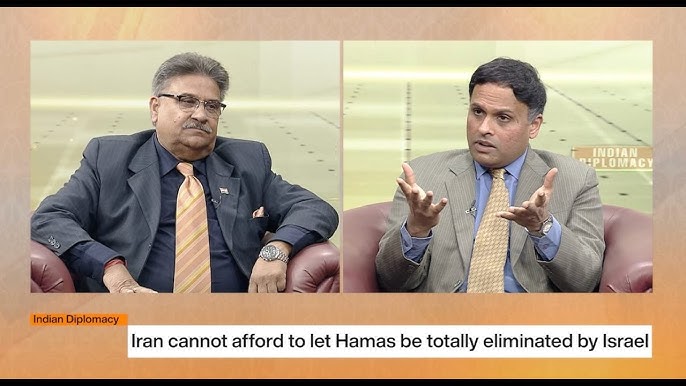Israel’s ‘Rising Lion’ and Iran’s Response Spark Global Tensions
The persistent strife between Israel and Iran has the potential to ignite worldwide volatility, escalate oil prices, hamper global trade routes, amplify inflation, and burden diplomatic ties. Unavoidably, countries like India will be compelled to perform intricate and balanced diplomatic maneuvers to navigate the geopolitical tensions. The operation dubbed ‘Rising Lion’, initiated by Israel against Iran, came underway in the pre-dawn hours of June 13th, 2025. The operation was characterized by substantial air and missile assaults on an array of Iran’s strategic points, including Natanz and Fordow nuclear facilities, command centers of Iran’s Revolutionary Guard, and military bases amongst other targets.
Tactics employed by Israel also included the previous usage of drone strikes on high-profile residential estates and public institutions across Tehran and other cities. The result of these actions is the successful eradication of some senior Iranian military figures and nuclear experts. Within the months leading up to the offensive, Israel had successfully weakened organizations such as the Hamas, Houthis, and Hezbollah, along with ousting the Syrian government under Assad’s administration. These entities were predominantly perceived to operate as regional substitutes for Iran.
It’s evident that Israel had received a subtle nod of approval from the Western powers such as the United States, the United Kingdom, Germany, and France for its belligerent operations against Iran. The primary objective of Israel’s bold stance seems to be the neutralization of Iran’s aggressive tendencies and irreversibly impair its ability to instigate hostile actions against Israel, either directly or via proxies. This is to be achieved by eliminating its nuclear program and striking its missile launchers, storage sites, and production facilities for missiles and drones.
Reacting to these attacks, Iran regarded Israel’s actions as nothing short of war declarations, hence initiating the ‘Operation True Promise III’, to counter-attack with missile and drone strikes on Israeli targets to expose their defense vulnerabilities. This move by Iran has prepared the battlefield for both nations to indulge in a gradual rise in retaliatory strikes. Iran also anticipates a unification amongst Islamic groups, spanning across both sects — Sunni and Shia, further aiming to undermine international peace efforts made by Israel, especially those mentioned in the Abraham Accords.
‘Operation Rising Lion’ executed by Israel inflicted severe destruction to Iran’s military and nuclear infrastructures, delivering a heavy death toll on the Iranian population, crippling air defense mechanism and leading to colossal civilian displacement. The counter-response by Iran through ‘Operation True Promise III’ revealed Israel’s defense weaknesses, struck important civil and economic structures causing considerable civilian casualties, despite the availability of urban shelters.
At this juncture, both nations are anticipating further military tension, significant international diplomatic scrutiny, financial distress, and possible humanitarian emergencies. Third parties such as India, Jordan, Egypt, and Turkiye will have to intricately negotiate this political and economic rift. The crude oil prices have ascended, currently stabilizing just over $75 a barrel, consequently leading to hike in inflation. Any further provocation like sealing off the critical Straits of Hormuz or the Persian Gulf can lead to a worldwide energy catastrophe and a further increase in oil prices.
Israel is under the impression that the desired time to militarily subdue Iran has finally come. In this highly volatile situation, India finds itself being tugged from both ends due to its strategic alliances with both Israel and Iran. Israel plays a crucial role as a defense supplier for India, while Iran offers India a strategic entrance to Central Asia and Afghanistan via the Bandar Abbas port.
Moreover, India finds itself astride two boats with interests vested in Russia and the US, both nations having contrasting positions in this conflict. India now finds itself walking a diplomatic tightrope where it needs to maintain equilibrium tied to these interests without compromising relations with either side.
From an economic perspective, India faces significant challenges since it imports nearly 80% of its energy requirements. If attacks on oil and gas infrastructures keep occurring or trade routes are obstructed, India stands to face the prospects of inflation, rupee depreciation and overall stock market instability. Furthermore, destruction caused at the Haifa port has resulted in significant delay in plans for the India-Middle East-Europe Economic Corridor (IMEC).
Perhaps of greater concern is the Indian diaspora residing in the Middle East, whose security could be drastically impacted if the conflict escalates throughout the region. In the worst-case scenario, widescale hostilities might warrant the need for an immediate repatriation process for Indian citizens.
At this point in time, efforts might be geared towards halting the war or alternatively exploring potential next steps to safeguard long-term geopolitical interests. As this process unravels, the continuity of assaults will persist, and unfortunately, civilians on both fronts will continue to shoulder the aftermath.

